 W
WDerick Heathcoat-Amory, 1st Viscount Amory,, was a British Conservative politician and member of the House of Lords.
 W
WBasil Mackenzie, 2nd Baron Amulree was a British physician and leading advocate of geriatric medicine in the United Kingdom.
 W
WHenry Cyril Paget, 5th Marquess of Anglesey, styled Lord Paget until 1880 and Earl of Uxbridge between 1880 and 1898, and nicknamed "Toppy", was a British peer who was notable during his short life for squandering his inheritance on a lavish social life and accumulating massive debts. Regarded as the "black sheep" of the family, he was dubbed "the dancing marquess" and for his Butterfly Dancing, taken from Loie Fuller, where a voluminous robe of transparent white silk would be waved like wings.
 W
WOliver Ridsdale Baldwin, 2nd Earl Baldwin of Bewdley, known as Viscount Corvedale from 1937 to 1947, was a British socialist politician who had a career at political odds with his father, the Conservative prime minister Stanley Baldwin.
 W
WWilliam Lygon, 7th Earl Beauchamp,, styled Viscount Elmley until 1891, was a British Liberal politician. He was Governor of New South Wales between 1899 and 1901, a member of the Liberal administrations of Sir Henry Campbell-Bannerman and H. H. Asquith between 1905 and 1915, and leader of the Liberal Party in the House of Lords between 1924 and 1931. When political enemies threatened to make public his homosexuality he resigned from office to go into exile. Lord Beauchamp is often assumed to be the model for the character Lord Marchmain in Evelyn Waugh's novel Brideshead Revisited.
 W
WGerald Hugh Tyrwhitt-Wilson, 14th Baron Berners, also known as Gerald Tyrwhitt, was a British composer, novelist, painter and aesthete. He was also known as Lord Berners.
 W
WAlan Tindal Lennox-Boyd, 1st Viscount Boyd of Merton, CH, PC, DL, was a British Conservative politician.
 W
WFrederick William John Augustus Hervey, 7th Marquess of Bristol, also known as John Jermyn and John Bristol, was a British hereditary peer, aristocrat and businessman. Although he inherited a large fortune, he died almost penniless from funding a chronic and persistent drug addiction.
 W
WGeorge Gordon Byron, 6th Baron Byron,, known simply as Lord Byron, was an English poet and peer. One of the leading figures of the Romantic movement, Byron is regarded as one of the greatest English poets. He remains widely read and influential. Among his best-known works are the lengthy narrative poems Don Juan and Childe Harold's Pilgrimage; many of his shorter lyrics in Hebrew Melodies also became popular.
 W
WEdward Hyde, 3rd Earl of Clarendon, styled Viscount Cornbury between 1674 and 1709, was an English aristocrat and politician. Better known by his noble title Lord Cornbury, he was propelled into the forefront of English politics when he and part of his army defected from the Catholic King James II to support the newly arrived Protestant contender, William III of Orange. These actions were part of the beginning of the Glorious Revolution of 1688. Cornbury's choice to support his cousin Anne instead of William after the rebellion cost him his military commission. However, Cornbury's support of King William's reign eventually earned him the governorship of the provinces of New York and New Jersey; he served between 1701 and 1708.
William "Kitty" Courtenay, 9th Earl of Devon, was the only son of William Courtenay, de jure 8th Earl of Devon, 2nd Viscount Courtenay and his wife Frances Clack. He attracted infamy for a homosexual affair with art collector William Beckford from boyhood when it was discovered and publicised by his uncle. From October 1788 until 1831, his official title was The Rt. Hon. The Viscount Courtenay of Powderham.
 W
WSheridan Frederick Terence Hamilton-Temple-Blackwood, 5th Marquess of Dufferin and Ava was a British patron of the arts. Less formally, he was usually called Sheridan Dufferin.
 W
WReginald Baliol Brett, 2nd Viscount Esher, was an historian and Liberal politician in the United Kingdom, although his greatest influence over military and foreign affairs was as a courtier, member of public committees and behind-the-scenes "fixer", or rather éminence grise.
 W
WLewis Vernon Harcourt, 1st Viscount Harcourt, was a British Liberal Party politician who held the Cabinet post of Secretary of State for the Colonies from 1910 to 1915. Lord Harcourt's nickname was "Loulou".
 W
W(Alexander) Gavin Henderson, 2nd Baron Faringdon was a British Labour politician and pacifist. He is most known for his charity work, his heavy financial support of medical aid programmes, and for housing 40 child refugees fleeing Hitler-backed fascist forces during the Spanish Civil War.
 W
WGeorge Francis Alexander Seymour, 7th Marquess of Hertford was the son of Hugh Seymour, 6th Marquess of Hertford.
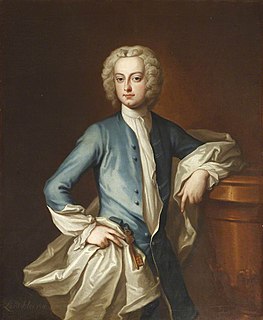 W
WJohn Hervey, 2nd Baron Hervey was an English courtier and political writer and memoirist who was the eldest son of John Hervey, 1st Earl of Bristol, by his second wife, Elizabeth. He was known as Lord Hervey from 1723, upon the death of his elder half-brother, Carr, the only son of his father's first wife, Isabella, but Lord Hervey never became Earl of Bristol, as he predeceased his father.
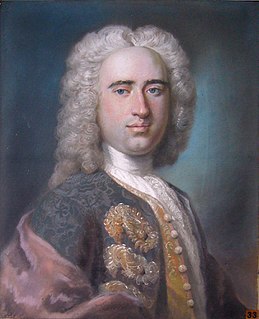 W
WStephen Fox-Strangways, 1st Earl of Ilchester PC was a British peer and Member of Parliament.
 W
WJohn Maynard Keynes, 1st Baron Keynes, was an English economist, whose ideas fundamentally changed the theory and practice of macroeconomics and the economic policies of governments. Originally trained in mathematics, he built on and greatly refined earlier work on the causes of business cycles. One of the most influential economists of the 20th century, his ideas are the basis for the school of thought known as Keynesian economics, and its various offshoots.
 W
WRobert Henry King, 4th Earl of Kingston, styled The Honourable Robert King until 1837 and Viscount Kingsborough between 1837 and 1839, was an Irish peer, soldier and Whig politician.
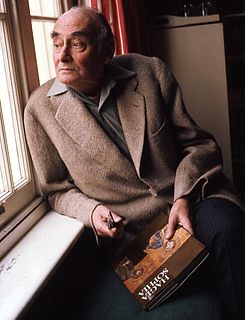 W
WJohn Patrick Douglas Balfour, 3rd Baron Kinross was a Scottish historian and writer noted for his biography of Mustafa Kemal Atatürk and other works on Islamic history.
 W
WIan Colin Maitland, 15th Earl of Lauderdale DL, styled Viscount Maitland between 1924 and 1931, was a representative peer for Scotland in the House of Lords from 1931 to 1945.
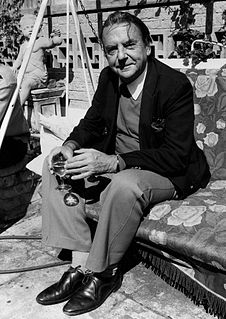 W
WRobert Cecil Romer Maugham, 2nd Viscount Maugham, known as Robin Maugham, was a British author.
 W
WEdward John Barrington Douglas-Scott-Montagu, 3rd Baron Montagu of Beaulieu, was an English Conservative politician well known in Great Britain for founding the National Motor Museum, as well as for a pivotal cause célèbre in British gay history following his 1954 conviction and imprisonment for homosexual sex, a charge he denied.
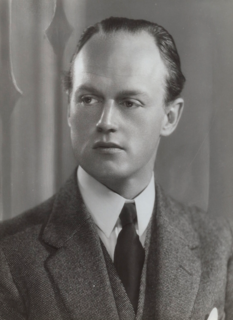 W
WAlexander Victor Edward Paulet Montagu, known as Viscount Hinchingbrooke from 1916 to 1962, as the Earl of Sandwich from 1962 to 1964 and as Victor Montagu from 1964 to 1995, was a British Conservative Member of Parliament (MP). He was usually known to family and friends as 'Hinch Hinchingbrooke' or 'Hinch Sandwich' or, later, as 'Hinch Montagu'. In 2015, it was revealed that he was cautioned for indecently assaulting a child for a period of two years between 31 December 1970 and January 1972.
 W
WHenry John Alexander Seely, 2nd Baron Mottistone was an architect whose work in the partnership of Seely & Paget included the interior of Eltham Palace in the Art Deco style, and the post-World War II restoration of a number of bomb-damaged buildings, such as houses in the Little Cloister, the London Charterhouse and the church of St John Clerkenwell.
 W
WArchibald Philip Primrose, 5th Earl of Rosebery, 1st Earl of Midlothian, was a British Liberal politician who served as Prime Minister of the United Kingdom from March 1894 to June 1895. Between the death of his father, in 1851, and the death of his grandfather, the 4th Earl of Rosebery, in 1868, he was known by the courtesy title of Lord Dalmeny.
 W
WGeorge Arthur Maurice Hamilton-Gordon, 2nd Baron Stanmore, was a British Liberal politician.
 W
WAnne Lennard, Countess of Sussex, formerly Lady Anne FitzRoy, was the eldest daughter of Barbara Villiers, mistress to King Charles II. She became the wife of Thomas Lennard, 1st Earl of Sussex.
 W
WThomas George Thomas, 1st Viscount Tonypandy, was a British Labour politician who served as Speaker of the House of Commons from 1976 to 1983.
 W
WEvan Frederick Morgan, 2nd Viscount Tredegar,, FAGS, FIL was a Welsh poet and author. On 3 March 1934, he succeeded to the title of 6th Baronet Morgan, 4th Baron Tredegar, and 2nd Viscount Tredegar, after the death of his father.
 W
WHoratio Walpole, 4th Earl of Orford, better known as Horace Walpole, was an English writer, art historian, man of letters, antiquarian and Whig politician.